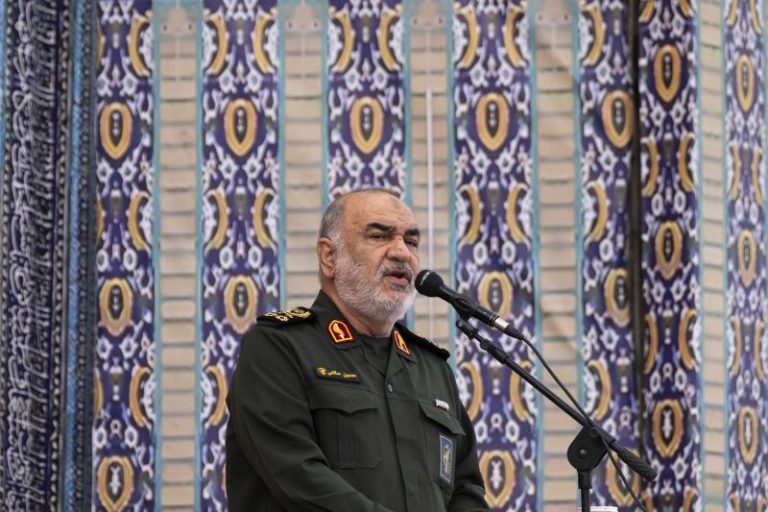As the head of the secretive Islamic Revolutionary Guard Corps (IRGC) Major General Hossein Salami, was one of the most powerful men in Iran, overseeing its most potent military arm and reporting directly to its Supreme Leader Ayatollah Ali Khamenei.
On Friday he was killed in Israel’s Rising Lion strikes that have targeted Iran’s nuclear program and senior military leaders in an attack that Prime Minister Benjamin Netanyahu said will last many days.
Iranian state media reported Salami had been killed by a strike on the IRGC’s headquarters in the capital Tehran. His death, along with other ranking members of Iran’s military, could hamper Iran’s response to the attack, analysts say.
“Without a doubt, Major General Salami was one of the most distinguished commanders of the Islamic Revolution — present on all fronts of scientific, cultural, security, and military jihad,” the Islamic Revolutionary Guard Corps (IRGC) said in a statement on Friday.
“In all arenas, he stood at the frontlines with a spirit of sincerity, wisdom, and devotion to the Supreme Leader, defending the ideals of the Revolution and the Iranian people,” the statement added.
Born in 1960, according to a US sanctions docket, Salami headed the secretive IRGC since 2019.
The position saw him helming one of the most powerful tools wielded by the Iranian state, which has been instrumental in crushing dissent at home and projecting Iran’s power abroad.
The IRGC boasts its own intelligence service, cyber operations unit, navy, and air force and analysts estimate it has up to 200,000 troops under its command. It also oversees Iran’s ballistic missile development, which Salami pushed to develop during his tenure.
In 2019 he said for the IRGC, ballistic missiles were “a way to end the story of American aircraft carriers.”
Analysts say the IRGC funds and supports a vast network of militias across the region which it uses to strike at US and other military personnel across the Middle East.
The IRGC is also believed to provide materials and support to Yemen’s Houthis, enabling the group to strike international shipping in the Red Sea and launch missiles and drones at Israel.
Salami was at the helm of the IRGC when Iran launched hundreds of drones and missiles at Israel in April and October last year, in the first direct strikes by Iran on Israeli territory.
In footage released by Iranian state media in January, Salami was seen inspecting what the media said was an underground military facility that had played a role in those attacks.
Wearing a green military uniform and short beard, Salami took the salute of soldiers in the cavernous underground complex and walked over the United States and Israel flags on the ground.
The site was now manufacturing “new special missiles,” semi-official Iranian media outlet Mehr News reported at the time.
In its statement confirming Salami’s death the IRGC said its command structure and other branches of the military were “fully prepared to deliver a decisive and harsh response.”
‘Do not come to the streets’
Salami was head when IRGC shot down a Ukrainian passenger jet shortly after it took off from Tehran’s international airport, killing all 176 people on board.
An unnamed IRGC commander of the Tor M1 surface-to-air missile defense system that shot down the plane was sentenced to 13 years in prison, according to Iran’s Mehr news outlet.
Salami apologized for unintentionally shooting down the Ukrainian plane and asked for forgiveness.
The IRGC is not only Iran’s most powerful military institution, it holds deep influence over domestic politics and the economy, with interests extending to and beyond the construction, telecommunications, auto and energy industries.
In 2022, amid weeks-long mass protests following the death of 22-year-old Mahsa Amini, who died after being detained by “morality police” allegedly for not abiding by the country’s conservative dress code, Salami warned Iran’s youth to stop demonstrating.
“Today is the last day of the riots. Do not come to the streets again. What do you want from this nation?” Salami said.










